The Zero Debris Community – of which ESA is a proud member – today published the Zero Debris Technical Booklet. The Technical Booklet is a Zero Debris Community initiative which identifies technical solutions which will contribute to a Zero Debris future. This is a valuable companion to the Zero Debris Charter and lays out some of the most important technical developments required to achieve the Charter’s ambitious targets.
Aim of the Zero Debris Booklet
The Booklet serves as a resource to support the Zero Debris Community in directing its resources towards research and future technology developments. This booklet encourages stakeholders to collaborate, share knowledge, and implement effective strategies for debris reduction. The aim is to provide a clear and structured approach to meeting the 2030 targets to all space actors.
The Booklet is technically focused, non-binding, and collaborative. While the legal, regulatory, political, and financial aspects of space debris are important, they are out of scope of the Technical Booklet. The Booklet complements the Zero Debris Charter by highlighting the way forward without imposing any additional expectations on the signatories of the Charter.
The booklet first helps the reader understand the scope of the threat posed by space debris before defining technical and practical challenges (Needs), identifying actionable strategies (Solutions), and specifying what is needed to support them (Key Enablers). The conclusion of the Booklet ties everything together, highlighting the long-term vision for sustainable and circular space operations.
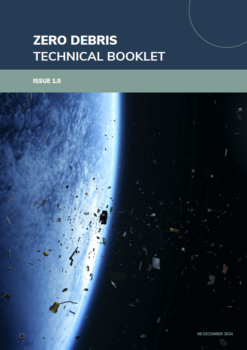
Developing the Zero Debris Booklet
The booklet is a community-driven document based on voluntary participation — decisions and inputs are agreed upon collectively by the community. It is an ongoing effort where any organization interested in contributing is welcome to provide input to future issues. This approach will ensure that the document remains dynamic and adaptable to new ideas and technologies.
For Issue 1, the Booklet was developed with stakeholders from the Zero Debris community. This effort was mainly focussed on a series of workshops and meetings including the ESA Clean Space Days 2023, a Webinar in January 2024, and a Workshop during the Zero Debris Week 2024 at the European Space Operations Centre (ESOC). The Booklet’s technical content was agreed upon during the following edition of the Clean Space Days in 2024 before being finalised by a small group of volunteer editors.
ESA acted as a facilitator and contributor during the development of the Booklet and will also be one of the Booklet’s beneficiaries by using it to guide its future efforts toward achieving Zero Debris.
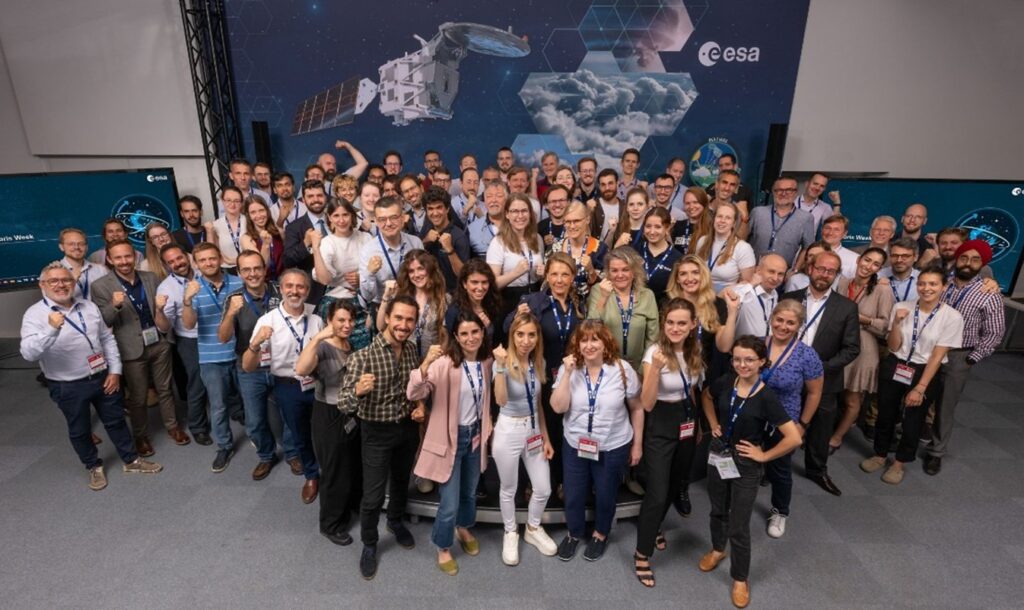
Complementing the Zero Debris Charter
The Booklet acts as a companion to the Zero Debris Charter, which lays out Principles and Targets for a debris-free space environment. The Charter’s Principles provide the ethical framework, emphasizing the need to minimize debris, mitigate its impacts, and improve understanding of the debris environment. They frame the shared responsibility of stakeholders in space activities.
Targets turn these Principles into measurable goals, setting concrete metrics, such as reducing debris risks, ensuring successful orbit clearance, and minimizing harm from re-entry by 2030. By aligning with the Charter’s Principles and Targets, the Zero Debris Booklet ensures that every technological step taken by the Zero Debris Community is towards a sustainable and debris-free environment.
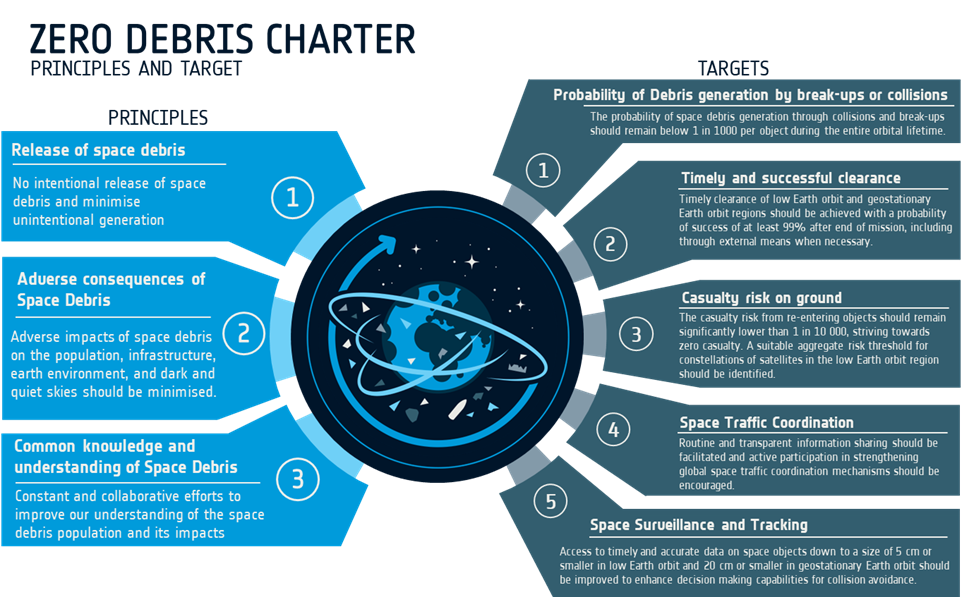
The future of the Zero Debris Booklet
Achieving a Zero Debris future is an ambitious aim but a necessary one to ensure a safe and usable orbital environment for future generations. This aim requires the effort of all stakeholders, space agencies, industry leaders, and policymakers, to innovate and act decisively – with the first issue of the Zero Debris Booklet published, we now have a blueprint for the technologies we will require.
As the Zero Debris Booklet is intended to be a living document, future issues are expected to reflect new possibilities as well as highlighting the progress that has been made since the latest issue. The approach to developing future issues will be discussed in an upcoming meeting to be announced on the Clean Space Blog.
Related Content
- Zero Debris Technical Booklet
- Article on the Technical Booklet
- Follow our Clean Space LinkedIn Page
- Learn more about the Zero Debris (ZD) approach
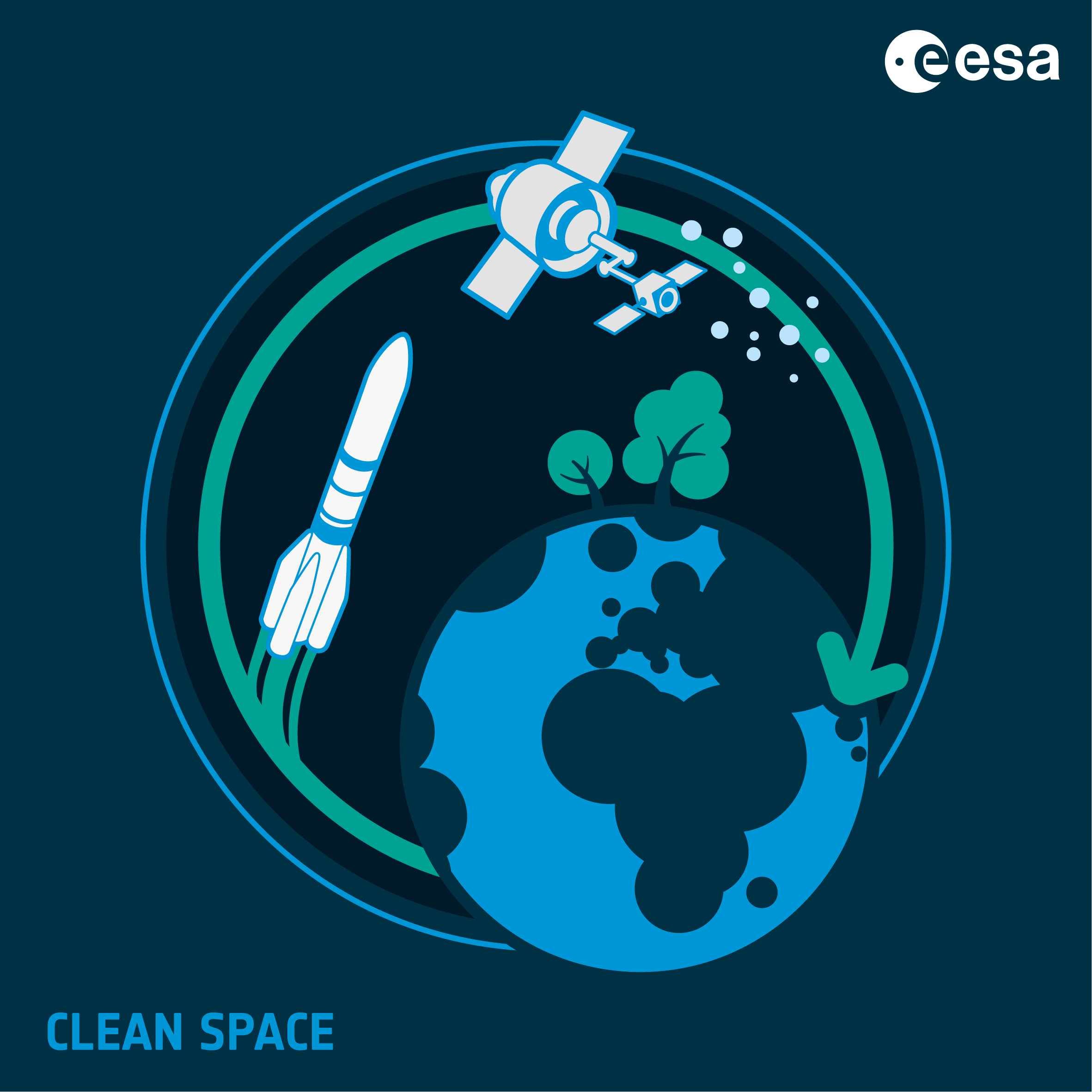

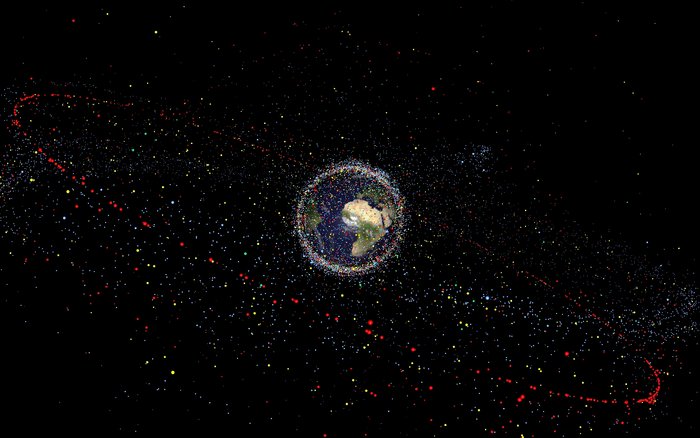
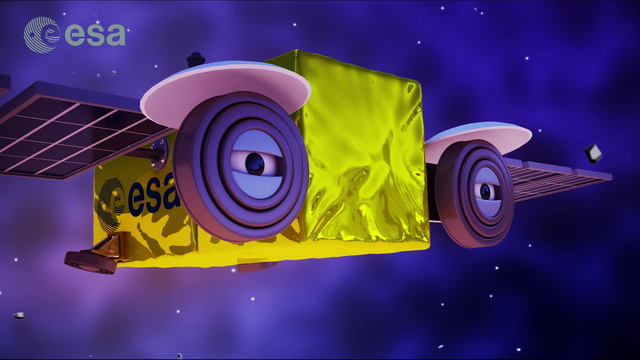
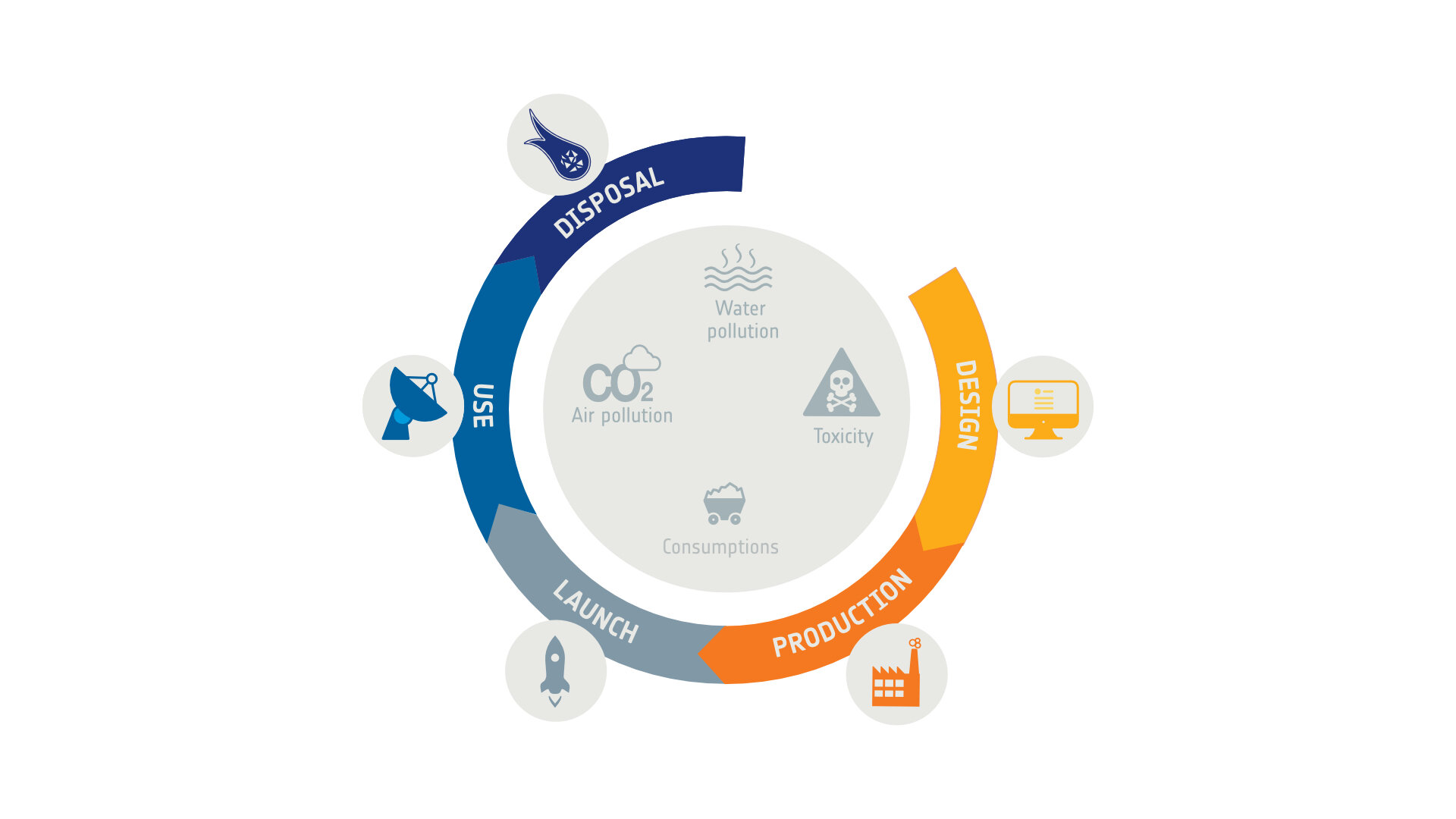
Discussion: one comment
It’s good to devote a lot of effort to think about a zero space junk policy, but then let’s not complain about being overtaken from the right and the Americans being able to put eight hundred satellites into orbit every year or that the Chinese are going to do very big things in the next few years without telling us anything.
All that, without counting that some Russian idiot might think of trying to detonate a satellite “to see what happens”, of course, because if it can be done, they will do it…. again.